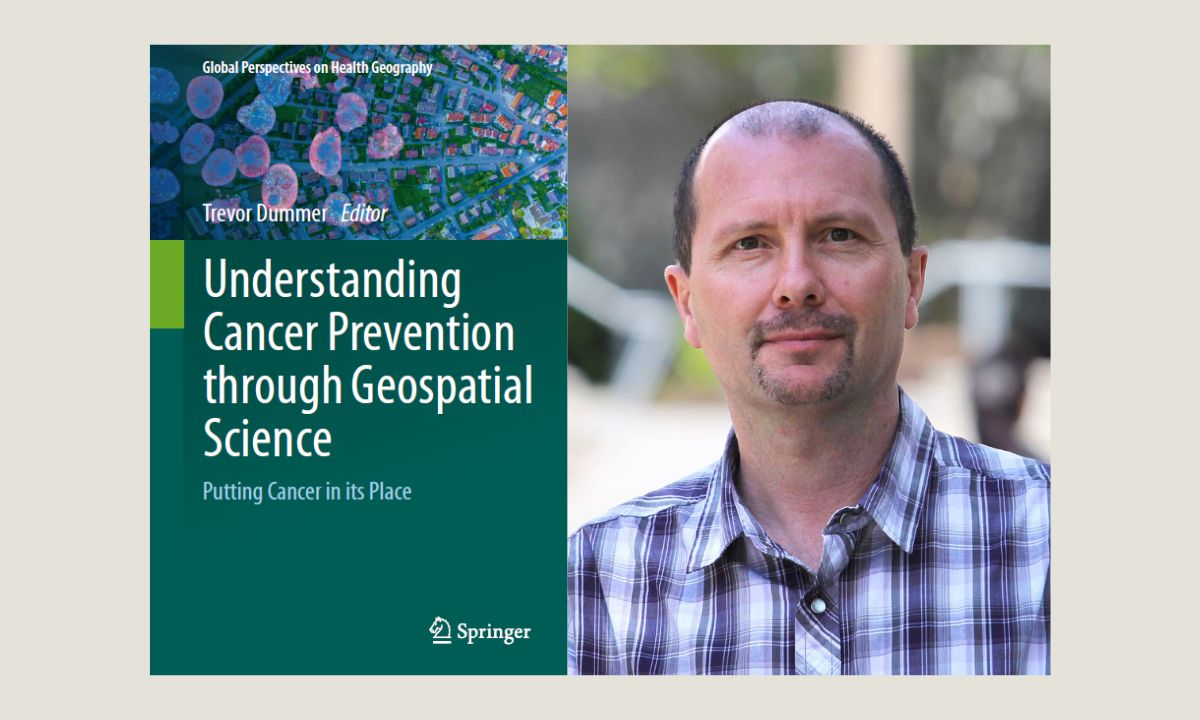
Dr. Trevor Dummer, Professor in UBC’s School of Population and Public Health (SPPH), has recently published a book Understanding Cancer Prevention through Geospatial Science: Putting Cancer in its Place as a part of the Springer book series titled Global Perspectives on Health Geography (GPHG).
This edited volume explores the pivotal role of geography in cancer prevention. As the global cancer burden is expected to double in the next two decades, Understanding Cancer Prevention through Geospatial Science delves into how geospatial tools and methods can be leveraged to prevent cancer. Through a series of geographically diverse case studies, the book examines cancer risk factors, such as exposure to environmental carcinogens, access to screening services, and cancer prevention policies, actions and initiatives. By adopting a geographical approach, this work highlights the need to address the upstream and structural determinants of cancer in order to implement effective and equitable interventions. This publication is a significant and unique contribution to the field of cancer control, offering evidence-based strategies to prioritize cancer prevention for a diversity of populations.
Dr. Trevor Dummer is a distinguished health geographer who has dedicated his career to understanding the complex relationship between the environment and human health. He brings a wealth of experience in research and administrative leadership to SPPH, and beyond. He is currently the Associate Director, Education at SPPH, the Canadian Cancer Society Chair in Cancer Primary Prevention, the lead for the UBC Cancer Prevention Research Excellence Cluster (CPRC) and the National Scientific Co-Director of the Canadian Partnership for Tomorrow’s Health (CanPath), which is Canada’s national longitudinal cancer and chronic disease cohort.
Dr. Dummer has played a vital role in advancing knowledge in cancer prevention, having led interdisciplinary studies to evaluate the environmental, behavioural, and social determinants of cancer. His approach is grounded in the understanding that where we live, work, and play is central to prevention.
Several chapters of the book were co-authored by researchers and students within the CPRC and SPPH, including faculty members Parveen Bhatti and Carolyn Gotay, research coordinators Gabriela Kuczynski and Xing Yu, and doctoral students Atul Aravindakshan, Ace Chan, Alpamys Issanov and Katherine White.